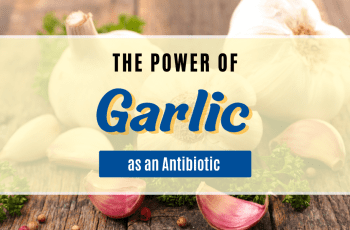As a nutritious leafy green vegetable, spinach offers many health benefits. However, it’s important to acknowledge that spinach may not be suitable for everyone. In this article, I will explore the reasons why some people should avoid eating spinach or limit their consumption of it, including health risks and allergies.
Spinach is packed with essential vitamins and minerals, making it a popular choice for a healthy diet. However, certain health conditions and allergies can make spinach less suitable for some people. It’s crucial to understand these factors to ensure that your dietary choices align with your health needs and goals.
Why Some People Should Avoid Eating Spinach
- Spinach may pose health risks and allergies for certain individuals.
- Health risks include interference with mineral absorption and the potential formation of kidney stones.
- Some individuals may have allergies to spinach, which can cause symptoms such as itching and difficulty breathing.
- People with specific conditions like gout, thyroid dysfunction, and certain medical conditions should be cautious about consuming spinach.
- Consulting with a healthcare professional or registered dietitian is advisable for personalized dietary recommendations.
Health Risks of Eating Spinach
Spinach, with its vibrant green leaves and nutrient-rich profile, is a popular choice for many seeking a healthier diet. However, it’s important to be aware of the potential health risks associated with consuming spinach, especially if it is a staple in your meal plan.
Oxalic Acid in Spinach
Spinach contains oxalic acid, a naturally occurring compound that can hinder the absorption of important minerals like iron, calcium, and magnesium in your body. This interference may lead to nutrient deficiencies, particularly in individuals who heavily rely on spinach as a dietary source. It’s essential to ensure a well-balanced diet and not solely depend on spinach for your nutritional needs.
Kidney Stones and Spinach
Another risk associated with consuming spinach is its high oxalate content. Oxalates can contribute to the formation of kidney stones, especially in individuals prone to this condition. If you have a history of kidney stones or are at a higher risk, it’s advisable to limit your intake of spinach and consult with a healthcare professional for personalized dietary guidance.
Iron Absorption and Spinach
While spinach is often touted as an excellent source of iron, the iron it contains is not as readily absorbed by the body as iron from animal sources. The presence of oxalic acid further hampers iron absorption, which can be problematic for individuals with iron deficiency anemia or increased iron requirements, such as pregnant women. It’s important to diversify your diet and consider other sources of iron or discuss appropriate supplementation with a healthcare provider.
Nutrient Deficiencies and Spinach
Relying heavily on spinach as a primary dietary source can potentially lead to nutrient deficiencies. While spinach provides a good range of vitamins and minerals, it’s essential to consume a variety of foods to ensure you’re meeting all your nutritional needs. Incorporating other vegetables, fruits, whole grains, lean proteins, and healthy fats into your diet can help prevent deficiencies and promote overall well-being.
It’s crucial to keep in mind that the health risks associated with spinach consumption vary depending on individual circumstances and overall dietary habits. Employing moderation, seeking professional guidance, and maintaining a well-balanced diet are key to optimizing your health while enjoying the benefits spinach has to offer.
Spinach Allergies
While rare, some individuals may have an allergy to spinach. Symptoms of a spinach allergy can include itching, swelling, and difficulty breathing. Individuals with known allergies to other foods in the same botanical family, such as beets and chard, may be more prone to developing a spinach allergy. It’s important for those who suspect a spinach allergy to consult with a healthcare professional for proper diagnosis and guidance.
Thyroid Function and Spinach
Individuals with specific health conditions, such as thyroid dysfunction, should also be cautious about consuming spinach as it may exacerbate these conditions. The high oxalate content in spinach can interfere with thyroid function in susceptible individuals. It’s advisable for individuals with thyroid dysfunction to speak with their healthcare provider to determine if spinach consumption is suitable for their overall thyroid health.
Calcium Absorption and Spinach
In addition, individuals with calcium absorption issues need to be cautious about consuming spinach. The high oxalate content in spinach can interfere with calcium absorption. Calcium is essential for maintaining strong bones and teeth, and it plays a vital role in various bodily functions. Therefore, individuals with specific calcium absorption concerns should consider alternative dietary sources or consult with a healthcare professional for personalized recommendations.

Spinach and Gout
Consuming spinach can have potential health risks, especially for individuals susceptible to gout. Gout is a form of arthritis caused by the accumulation of uric acid in the joints, leading to severe pain, swelling, and inflammation.
Spinach contains high levels of oxalate and purines, which can increase the risk of gout in susceptible individuals. Oxalates in spinach contribute to kidney stone formation, further complicating the condition. It’s important for those with a history of gout or hyperuricemia to be mindful of their spinach intake to prevent flare-ups and effectively manage their condition.
Consulting with a healthcare professional or registered dietitian is advisable for personalized dietary recommendations tailored to individual needs and health goals.
Spinach and Iron Absorption
Spinach is often praised for being a good source of iron. However, it’s essential to understand that the iron found in spinach is not as readily absorbed by the body compared to iron from animal sources. This is because spinach contains oxalic acid, which can inhibit iron absorption.
Individuals with iron deficiency anemia, a condition characterized by low levels of iron in the body, may face challenges in obtaining sufficient iron from spinach alone. In such cases, it may be necessary to explore other dietary sources of iron or consider iron supplementation under the guidance of a healthcare professional.
Furthermore, individuals with certain medical conditions or those requiring higher levels of iron, such as pregnant women, may need to consider their overall diet and iron intake. A balanced approach that includes a variety of iron-rich foods can help ensure adequate iron levels.
In addition, it’s important for individuals taking blood-thinning medications to be cautious about consuming excessive amounts of spinach. Spinach contains vitamin K, which plays a role in blood clotting. Consuming large amounts of spinach alongside blood thinners may interfere with the medication’s effectiveness. It’s advisable to consult with a healthcare professional or registered dietitian for personalized recommendations based on individual health needs and medications.
Similarly, individuals with thyroid conditions should be mindful of their spinach consumption. The high content of oxalic acid in spinach may affect thyroid function in susceptible individuals. If you have a thyroid condition, it’s recommended to discuss your diet and spinach intake with a healthcare professional to ensure it aligns with your specific needs and treatment plan.
Remember, while spinach can be a valuable addition to a balanced diet, it’s important to be aware of its potential interactions with certain medical conditions and medications. Taking a thoughtful and individualized approach to your diet will help you make the best choices for your overall health and well-being.
Spinach and Eye Health
Spinach is often praised for its benefits to eye health due to its high levels of lutein and zeaxanthin. These antioxidants play a crucial role in protecting the eyes from damage caused by free radicals. By neutralizing harmful molecules, lutein and zeaxanthin help maintain the health of the retina and lens, reducing the risk of age-related macular degeneration and cataracts.
However, it’s important to note that individuals with certain health conditions should exercise caution when consuming spinach, as it may exacerbate their symptoms. For those with kidney stones, spinach can contribute to the formation of these painful minerals due to its oxalate content. Likewise, individuals with kidney disease should limit their consumption of spinach, as it can further strain the kidneys.
Furthermore, individuals with gallbladder problems should be mindful of their spinach intake, as the oxalates in spinach can potentially cause gallbladder issues or worsen existing conditions. Lastly, individuals with thyroid dysfunction should consult with their healthcare provider before incorporating spinach into their diet, as the oxalates may interfere with thyroid function and medication absorption.
It’s crucial for individuals with these health conditions to work closely with their healthcare providers to determine the appropriate dietary restrictions and guidelines. Depending on their specific needs, alternative sources of lutein and zeaxanthin may be recommended to support their eye health without exacerbating their conditions.
Spinach and Skin Health
Spinach is not only beneficial for your overall health, but it also offers various advantages for your skin. With its rich vitamin and antioxidant content, spinach can help improve your skin texture, promote healing, and protect against skin-related disorders.
Promotes Skin Healing and Texture
One of the key nutrients found in spinach is vitamin A, which plays a vital role in maintaining healthy skin. Vitamin A helps improve skin texture, promotes the growth of new skin cells, and supports the healing process in case of sun damage or other skin injuries.
Protects Against UV Radiation
The antioxidants present in spinach, such as vitamin C and beta carotene, provide protection against the harmful effects of UV radiation. These antioxidants help combat free radicals, which are unstable molecules that can cause skin damage and contribute to premature aging. By consuming spinach regularly, you can enhance your skin’s natural defense against UV damage.
Anti-Aging Properties
In addition to protecting the skin from UV radiation, the antioxidants in spinach also provide anti-aging properties. These antioxidants help reduce the appearance of wrinkles and fine lines, giving your skin a more youthful and radiant appearance.
Potential Cancer Prevention
Leafy greens like spinach have been associated with a lower risk of developing certain types of cancer. The phytochemicals and antioxidants present in spinach help neutralize harmful free radicals in the body, thus reducing the risk of cancer development. Including spinach in your diet as part of a healthy eating plan may contribute to cancer prevention.
Possible Asthma Management
Some studies suggest that consuming foods rich in antioxidants, such as spinach, may help in managing asthma symptoms. Asthma is a chronic respiratory condition characterized by inflammation and narrowing of the airways. The beneficial compounds found in spinach, including vitamins C and E, can support lung health and may alleviate asthma symptoms.
Adding spinach to your diet, along with a well-balanced and nutritious eating plan, can contribute to healthy skin and provide potential benefits in cancer prevention and asthma management.

Conclusion: Why Some People Should Avoid Eating Spinach
Spinach is undoubtedly a powerhouse vegetable that offers a plethora of health benefits. Incorporating spinach into your diet can contribute to better eye health, promote a glowing complexion, and provide your body with vital vitamins and minerals. However, it’s crucial to consume spinach in moderation and be mindful of potential side effects that excessive intake may bring.
One of the possible side effects of eating too much spinach is an increased risk of kidney stone formation. The oxalates in spinach can contribute to the development of kidney stones, particularly in individuals who are susceptible to this condition. Therefore, it’s essential to monitor spinach consumption and ensure that it is part of a well-balanced diet.
Moreover, certain health conditions and medications may interact negatively with spinach. Individuals with specific conditions such as kidney disease, gallbladder problems, or thyroid dysfunction should exercise caution and seek guidance from a healthcare professional to determine their suitable spinach intake. It’s always advisable to consult with a healthcare professional or registered dietitian who can provide personalized recommendations based on individual health needs and goals.
To reap the health benefits of spinach without experiencing any detrimental effects, it’s important to strike a balance. Incorporate spinach into your meals and enjoy its nutrients, but also diversify your diet to include other healthy foods. Ultimately, by making informed decisions and seeking professional guidance, you can ensure that spinach remains a valuable component of your overall nutrition plan.
FAQ
Are there any health risks associated with eating spinach?
Yes, there are certain health risks associated with eating spinach. It contains oxalic acid, which can interfere with the absorption of minerals like iron, calcium, and magnesium. It can also contribute to the formation of kidney stones in susceptible individuals. Additionally, some people may have a spinach allergy. It’s important to consume spinach in moderation and be aware of these potential risks.
What are the symptoms of a spinach allergy?
Symptoms of a spinach allergy can include itching, swelling, and difficulty breathing. Individuals with known allergies to other foods in the same botanical family, such as beets and chard, may be more prone to developing a spinach allergy. If you suspect a spinach allergy, it’s important to consult with a healthcare professional for proper diagnosis and guidance.
Can spinach interfere with the absorption of iron?
Yes, spinach contains oxalic acid, which can inhibit the absorption of iron, particularly in individuals with iron deficiency anemia. It’s important to be cautious about consuming excessive amounts of spinach if you have this condition or require higher levels of iron, such as during pregnancy or certain medical conditions. Consulting with a healthcare professional or registered dietitian is advisable to ensure adequate iron intake.
Can spinach exacerbate thyroid conditions?
Spinach contains oxalate, which may impact thyroid function in susceptible individuals. If you have a thyroid condition, it’s important to be cautious about consuming excessive amounts of spinach. Consulting with a healthcare professional for personalized dietary recommendations is advisable.
Can spinach contribute to the formation of kidney stones?
Yes, spinach is high in oxalates, which can contribute to the formation of kidney stones in susceptible individuals. It’s important to consume spinach in moderation and be mindful of your overall diet to prevent kidney stone formation.
Can spinach worsen gout symptoms?
Spinach contains high levels of oxalate and purines, which can increase the risk of developing gout in susceptible individuals. If you have a history of gout or hyperuricemia, it’s important to limit your consumption of spinach to prevent flare-ups and manage your condition effectively.
Can spinach provide benefits to eye health?
Yes, spinach is rich in lutein and zeaxanthin, antioxidants that support eye health. These nutrients protect the eyes from damage caused by free radicals. However, individuals with certain health conditions should exercise caution when consuming spinach. It’s important to consult with a healthcare provider for personalized dietary recommendations.
Can spinach improve skin health?
Yes, spinach offers various benefits to skin health due to its rich vitamin and antioxidant content. Vitamin A promotes skin texture and healing, while antioxidants like vitamin C and beta carotene protect the skin from UV damage and provide anti-aging properties. However, individuals with certain health conditions should consult with a healthcare provider before incorporating spinach into their diet.




